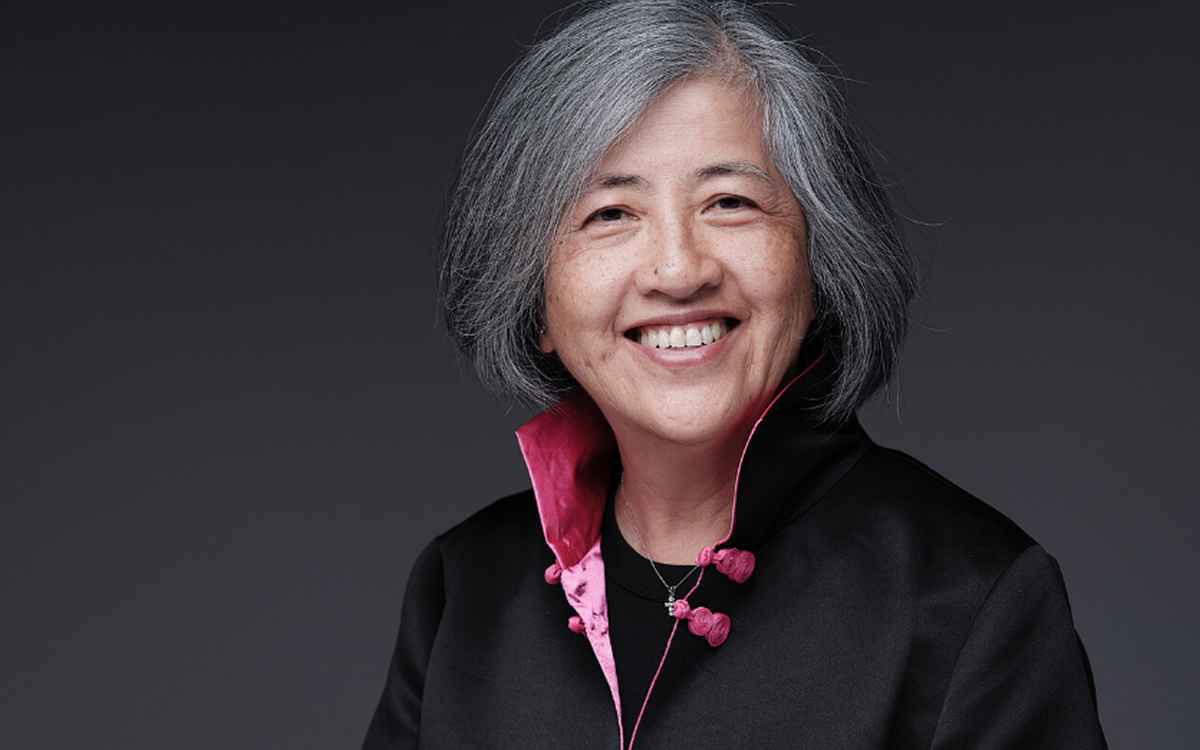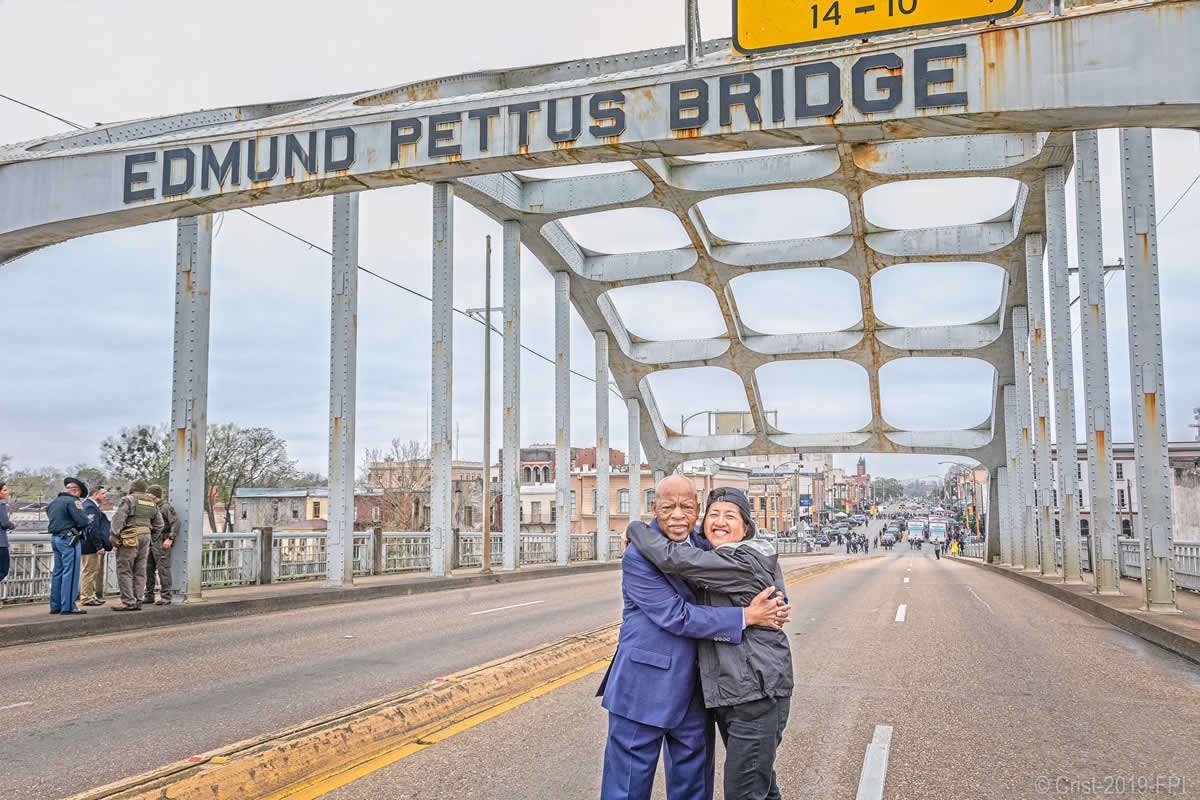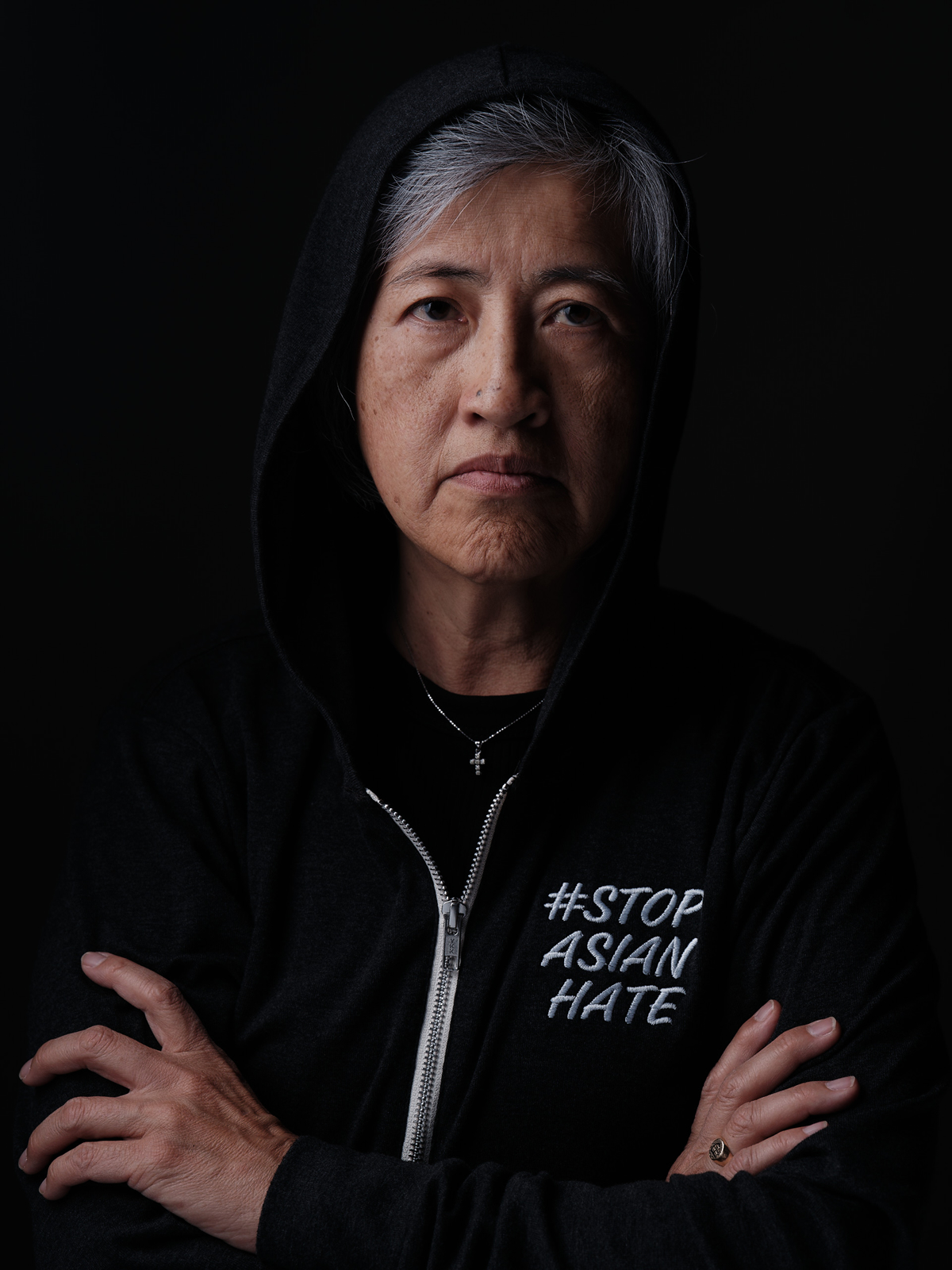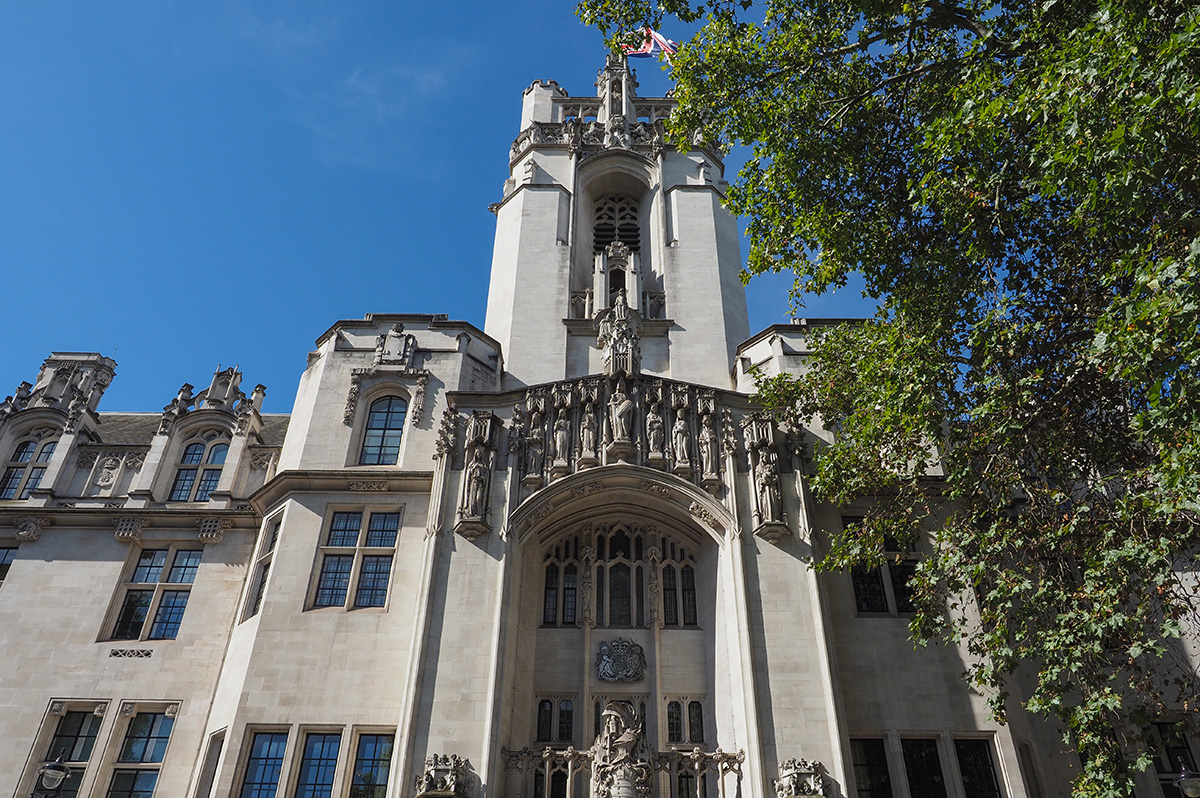World
Meet America’s first out lesbian ambassador
Chantale Wong on groundbreaking role as U.S. director of Asian Development Bank

The first openly lesbian U.S. ambassador on Wednesday discussed her historic ambassadorship with the Washington Blade during an exclusive interview in D.C.
“It is a milestone for the United States,” said Chantale Wong, the U.S. director of the Asian Development Bank. “I’m hoping that it’s not too soon that I will be joined by others.”
Wong, whom the U.S. Senate confirmed in February by a bipartisan 66-31 vote margin, represents the U.S. at the Asian Development Bank, which seeks to promote economic and social development throughout the Asia-Pacific Region. Wong is also the first openly LGBTQ person of color to serve as a U.S. ambassador.
Interim Human Rights Campaign President Joni Madison said Wong’s confirmation “is one step closer to achieving a future where all members of the LGBTQ+ community can see themselves reflected at the highest levels of government.” Wong told the Blade that she feels “a huge weight of responsibility.”
“It’s a huge responsibility I carry with me because it is the hopes and dreams of those that want to be in my position, but also the issues that I will carry forward in terms of providing inclusive growth for our community in many of these countries where the community is really criminalized and targeted, and so that is going to be my burden and my responsibility to bring forth a better livelihood for these communities.”
Brunei and Singapore are among the bank’s member countries that continue to criminalize consensual same-sex sexual relations. The bank itself is based in the Philippines, a country in which dozens of LGBTQ rights groups operate.
Wong between 1999-2002 was the acting U.S. executive director of the bank’s board of directors. Wong noted the Philippines’ Foreign Affairs Department granted her wife a diplomatic visa after the bank recognized their Vermont marriage.
“For me 20 years ago, it was really precedent setting,” said Wong. “I was there with my partner.”
Wong spoke with the Blade less than two weeks after a group of Democratic lawmakers in a letter they sent to Secretary of State Antony Blinken urged the State Department to do more to ensure countries recognize the same-sex partners of American diplomats. The interview also took place against the backdrop of efforts to add sexual orientation and gender identity to the Asian Development Bank’s safeguards.
“In all the institutions, we come up with ensuring that any of our projects and our policies do no harm and maybe even improve the lives of the beneficiaries we try to serve,” said Wong. “Ultimately, it’s about economic development for these countries … we’ve always had labor standards, environmental standards, other social standards, social safeguards. You don’t go in and harm the people you’re trying to help.”
Wong further noted LGBTQ people “are the vulnerable of the vulnerable because of many of the laws in these countries are specifically targeting LGBTQ people.”
“We want to really advance that issue, that you’re also looking at that community to ensure that we do no harm, but also we talk about inclusive growth, that the economies of these countries cannot fully grow if you leave out any segments of the community. So that’s the push on the SOGIE (sexual orientation and gender identity and gender expression) safeguards.”
Wong said she expects the bank’s board in 2023 will decide whether to accept the proposed LGBTQ-specific safeguard. Wong told the Blade she expects the U.S. government will endorse it, noting the Biden administration’s executive order that bans discrimination against federal employees based on sexual orientation and gender identity and its commitment to promote LGBTQ rights abroad as part of U.S. foreign policy.
“The president is very clear,” said Wong. “The question how to go about making sure that this safeguard is protective of the community. That’s the discussion that’s going on.”
Ambassador fled China as a child
Wong was born in Shanghai in 1954. Mao Tse-tung in 1958 launched the Great Leap Forward that sought to transform China into an industrial economy. Wong said the famine that resulted from the campaign killed upwards of 55 million people.
Wong told the Blade her parents in 1960 “made the ultimate sacrifice to allow me to escape” China in the bottom of a boat that brought her and her grandmother to Hong Kong, which at the time was a British colony. Wong lived in Hong Kong with her aunt and uncle. They enrolled her in a Catholic boarding school in Macau, which at the time was a Portuguese territory.
She was baptized and given the name Chantale after St. Jane Frances de Chantal, who Wong noted is the patron saint of “forgotten people.” Wong said the first English word she learned to say and write was her name, which she practiced while taking the ferry between Hong Kong and Macau.
Wong, her aunt and uncle moved to the Japanese island of Okinawa in the mid-1960s.
President Nixon in 1972 traveled to China, and Japan the same year established diplomatic relations with the country. Wong, her aunt and uncle received Taiwanese passports that allowed them to travel to Guam, a U.S. territory in the western Pacific Ocean.
Wong attended an all-girls Catholic high school in Guam. The island’s governor later endorsed her for a scholarship that allowed her to enroll at the University of Hawaii. Wong later studied at the University of California, Berkeley and Harvard University’s John F. Kennedy School of Government.
Wong in 1982 returned to Shanghai, where she reunited with her parents who she had not seen in 21 years. Wong also met her brother whom she had never met.
Wong’s brother left China five years later and now lives in the U.S. with his family. Their parents arrived in the U.S. in 1990, a year after the Chinese government massacred pro-democracy protesters in Beijing’s Tiananmen Square. Wong pointed out her parents were in their 60s when they left China.
“Those are the models I adhere to,” she said.
Wong further added her “journey is not unlike many of the people that we’re trying to help and nurture and economically develop.”
“I’m very mindful of my journey and what we’re trying to help,” she said.
Trump ‘fueled the fire of anti-Asian hate’
Wong throughout her career has worked to expand opportunities for people of Asian and Pacific Islander descent.
She founded the Conference on Asian Pacific American Leadership, a group that seeks to “empower” members of those communities to enter public service, in 1990. New York Congresswoman Grace Meng is among the organization’s alumni.
Wong also documented the late U.S. Rep. John Lewis (D-Ga.) during the final years of his life.

Wong during the interview wore a gray hoodie with the hashtag #StopAsianHate.
She noted the Chinese Exclusion Act, an 1882 law that prohibited Chinese people from entering the U.S., and Japanese internment camps during World War II. Wong also referenced Vincent Chin, a Chinese American man who two white autoworkers in Detroit murdered in 1982.
Wong added “the rhetoric of the last administration fueled the fire of anti-Asian hate” during the pandemic.
“It’s a huge issue for the community,” she said. “There’s also hate against gays and lesbians.”

Chile
Transgender woman sues Chilean national police
Isabella Panes alleges she suffered harassment, exclusion after becoming ‘carabinera’

Isabella Panes in 2022 was celebrated as a symbol of inclusion.
Wearing an olive green uniform and a shy smile, she appeared in the media and on social media as Chile’s first trans female “carabinera” or national police officer. The Carabineros promoted Panes as a sign of openness, but that story has become a dramatic case of institutional discrimination.
Panes today faces the Carabineros in court.
She has denounced a series of systematic acts of exclusion, harassment at work, and violation of fundamental rights that she and her defense team maintains pushed her into a mental health crisis that almost cost her her life.
“My hope is that tomorrow we will be able to live in a world of equality for all. Just that we understand that we are human beings and we have to make life a lot easier for each other,” Panes told the Washington Blade during an exclusive interview.
Panes, 29, grew up in Laja in the Biobío region.
She dreamed of becoming a “carabinera” since she was a child, despite the fact that she faced discrimination because of her gender identity. After years of effort, surgeries and a difficult transition, Panes enrolled in the Carabineros Academy in 2021.
Panes faced the challenge of making her medical processes compatible with the physical demands of training. Even so, she graduated with good marks, and was recognized as part of the new institutional image the Carabineros wanted to project after the 2021 social unrest tarnished their image.
This institutional support disappeared after the media campaign.
Panes alleges she was marginalized from operational duties and relegated to administrative tasks, despite her interest in and training to patrol the streets like any other officers.
“I joined the Carabineros to serve, not to be a marketing decoration,” she said. “I was offered to be part of the change, but only if I kept quiet and accepted the mistreatment.”
The accusations against the Carabineros are serious: Constant mockery by colleagues, dissemination of private information about her personal life, invasive questions about her body and sexual orientation. Panes’s legal representatives said this abuse took place within a context where the institution did not take effective measures to protect their client.
The Carabineros Social Security Administration, known by the Spanish acronym Dipreca, also refused to cover her transition-related medical procedures, arguing they were “aesthetic,” despite medical reports that indicated their importance for Panes’s mental health and well-being.
Panes in January attempted to kill herself by suicide. She managed to survive after calling Chile’s 4141 mental health care number for help.
“They were killing me slowly, from the inside,” said Panes.
Panes has brought her case to the Supreme Court after a lower court ruled in favor of Dipreca’s decision to not cover her medical treatments.
Her legal team in a lawsuit has also accused the Carabineros of employment and systematic discrimination. Panes is seeking damages and institutional reforms.
“The Carabineros used Isabella to clean up its public image, but when it came to guaranteeing real rights, they abandoned her,” said Javiera Zúñiga, spokesperson for the Movement for Homosexual Integration and Liberation, a Chilean advocacy group.
“It is not enough to show up at the Pride march,” she added. “True inclusion is demonstrated in deeds, in daily dealings, in respect for the dignity of all people.”
Panes’s case starkly exposes the limits of diversity policies when there is no deep institutional commitment to implement them.
“I am no longer afraid,” said Panes, ”What happened to me cannot happen again. Not for me, but for all those who come after me.”
Brazil
US lists transgender Brazilian congresswoman’s gender as ‘male’ on visa
Erika Hilton has represented São Paulo since 2022

A transgender Brazilian congresswoman says the U.S. issued her a visa that listed her gender as “male.”
Erika Hilton on Wednesday wrote on her Instagram page that she requested a visa that would have allowed her to travel to the U.S. in order to participate in the Brazil Conference at Harvard University and the Massachusetts Institute of Technology.
The conference took place earlier this month.
“I was classified as ‘male’ by the U.S. government when I went to get my visa,” wrote Hilton, who added a visa she received from the U.S. in 2023 listed her gender as “female.”
Hilton is a Black travesti and former sex worker from São Paulo who won a seat in the Brazilian Congress in 2022. The Washington Blade spoke with Hilton shortly after her election.
“It is a big responsibility … but I feel very honored,” said Hilton. “I very much like to be able to be a representative for my people, and the more than 250,000 people who voted for me have confidence in me,” she said after she spoke at a rally in support of now Brazilian President Luiz Inácio Lula da Silva in a São Paulo square. “This demonstrates that our work has the potential to have a gigantic reach; where we can advance efforts to end death, poverty, misery, genocide that we have.”
President Donald Trump in his inaugural speech announced the federal government’s “official policy” is “there are only two genders, male and female.” The Trump-Vance administration has also banned the State Department from issuing passports with “X” gender markers.
Germany and Denmark are among the countries that have issued travel advisories for trans and nonbinary people who plan to visit the U.S. These warnings come ahead of WorldPride, which is scheduled to take place in D.C. from May 17-June 8.
Hilton said she is “not surprised” the U.S. issued her a visa with a male gender marker.
“I’m also not surprised by the level of hatred and fixation these people have with trans people,” she said. “After all, the documents I presented are rectified, and I’m registered as a woman, even on my birth certificate.”
Hilton further accused the U.S. of “ignoring official documents from other sovereign nations, even from a diplomatic representative.”
“At the end of the day, I’m a Brazilian citizen, and my rights are guaranteed and my existence is respected by our own constitution, legislation, and jurisprudence,” she said.
Editor’s note: Duda Salabert, another transgender Brazilian congresswoman, also said the U.S. listed her gender as “male” on her American visa.
United Kingdom
UK Supreme Court rules legal definition of woman limited to ‘biological women’
Advocacy groups say decision is serious setback for transgender rights

The British Supreme Court on Wednesday ruled the legal definition of a woman is limited to “biological women” and does not include transgender women.
The Equality Act that bans discrimination based on sexual orientation and gender identity took effect in 2010.
Scottish MPs in 2018 passed a bill that sought to increase the number of women on government boards. The Supreme Court ruling notes For Women Scotland — a “feminist voluntary organization which campaigns to strengthen women’s rights and children’s rights in Scotland” — challenged the Scottish government’s decision to include trans women with a Gender Recognition Certificate in its definition of women when it implemented the quota.
Stonewall U.K., a British advocacy group, notes a Gender Recognition Certificate is “a document that allows some trans men and trans women to have the right gender on their birth certificate.”
“We conclude that the guidance issued by the Scottish government is incorrect,” reads the Supreme Court ruling. “A person with a GRC (Gender Recognition Certificate) in the female gender does not come within the definition of ‘woman’ for the purposes of sex discrimination in section 11 of the EA (Equality Act) 2010. That in turn means that the definition of ‘woman’ in section 2 of the 2018 Act, which Scottish ministers accept must bear the same meaning as the term ‘woman’ in section 11 and section 212 of the EA 2010, is limited to biological women and does not include trans women with a GRC.”
The 88-page ruling says trans people “are protected by the indirect discrimination provisions” of the Equality Act, regardless of whether they have a Gender Recognition Certificate.
“Transgender people are also protected from indirect discrimination where they are put at a particular disadvantage which they share with members of their biological sex,” it adds.
Susan Smith, co-founder of For Women Scotland, praised the decision.
“Today the judges have said what we always believed to be the case, that women are protected by their biological sex,” she said, according to the BBC. “Sex is real and women can now feel safe that services and spaces designated for women are for women and we are enormously grateful to the Supreme Court for this ruling.”
Author J.K. Rowling on X said it “took three extraordinary, tenacious Scottish women with an army behind them to get this case heard by the Supreme Court.”
“In winning, they’ve protected the rights of women and girls across the UK,” she added.
It took three extraordinary, tenacious Scottish women with an army behind them to get this case heard by the Supreme Court and, in winning, they’ve protected the rights of women and girls across the UK. @ForWomenScot, I’m so proud to know you 🏴💜🏴💚🏴🤍🏴 https://t.co/JEvcScVVGS
— J.K. Rowling (@jk_rowling) April 16, 2025
Advocacy groups in Scotland and across the U.K. said the ruling is a serious setback for trans rights.
“We are really shocked by today’s Supreme Court decision — which reverses 20 years of understanding on how the law recognizes trans men and women with Gender Recognition Certificates,” said Scottish Trans and the Equality Network in a statement posted to Instagram. “The judgment seems to have totally missed what matters to trans people — that we are able to live our lives, and be recognized, in line with who we truly are.”
Consortium, a network of more than 700 LGBTQ and intersex rights groups from across the U.K., in their own statement said it is “deeply concerned at the widespread, harmful implications of today’s Supreme Court ruling.”
“As LGBT+ organizations across the country, we stand in solidarity with trans, intersex and nonbinary folk as we navigate from here,” said Consortium.
The Supreme Court said its decision can be appealed.
-

 District of Columbia4 days ago
District of Columbia4 days agoFinal push to raise funds, fill D.C. hotels as WorldPride nears
-

 District of Columbia3 days ago
District of Columbia3 days agoReenactment of 1965 gay rights protest at White House set for April 17
-

 Maryland3 days ago
Maryland3 days agoFreeState Justice: Transgender activist ‘hijacked’ Moore’s Transgender Day of Visibility event
-

 Hungary3 days ago
Hungary3 days agoHungarian MPs amend constitution to ban public LGBTQ events









